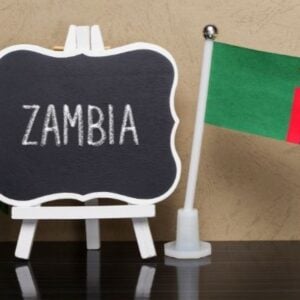Zimbabwe is hosting a major training workshop this week aimed at strengthening local capacity for digital surveillance of key quarantine pests. The workshop brings together over 50 national surveillance technicians to receive hands-on training in pest identification, mobile data collection, and geospatial mapping. Organized under the Africa Phytosanitary Programme (APP), in collaboration with the International Plant Protection Convention (IPPC) Secretariat, the African Union Commission, and the Food and Agriculture Organization (FAO), the initiative focuses on improving monitoring of five major quarantine pests: Fusarium wilt, Diaphorina citri, Citrus Greening, Banana Bunchy Top Virus, and Bactrocera spp (fruit flies), which pose significant threats to food security and agricultural trade.
Dr. Dumisani Kutyawo, Chief Director of Research, Education, and Specialist Services in Zimbabwe’s Ministry of Agriculture, emphasized that participants will gain practical skills in field surveillance, digital data collection, and timely reporting, supported by digital tools and tablets provided through the APP. The training builds on a 2023 train-the-trainer workshop in Egypt, where experts from Zimbabwe and ten other pilot countries learned to use APP digital tools. The goal is to pass these skills to frontline technicians and managers to strengthen national and regional pest surveillance systems, with the Zimbabwe workshop being the first of several planned across seven other participating countries, aiming to train over 300 personnel continent-wide.
Descartes Koumba of the IPPC Secretariat highlighted that empowering African countries with digital surveillance tools ensures compliance with plant health standards, including maintaining pest-free areas and mandatory reporting on pest presence. The workshop combines theoretical instruction with practical application, covering pest biology, identification, and survey protocols. Participants gain experience using APP mobile applications and ArcGIS Hub for data collection and storage. A full-day field visit allows technicians to simulate practical surveillance activities, ensuring they gain confidence in executing surveillance tasks under real field conditions.
To ensure sustainability, participants will develop provincial surveillance workplans to translate their training into actionable strategies at the district and provincial levels, including at ports of entry. Master trainers from the APP pilot phase reinforce knowledge transfer and institutional memory, while post-workshop activities, including data review, mapping, and reflection sessions, consolidate learning and prepare technicians for ongoing surveillance efforts.
The Africa Phytosanitary Programme aims to transform the technical capacity of phytosanitary personnel across Africa, equipping them with advanced digital technologies and scientific approaches to enhance pest surveillance, diagnosis, detection, reporting, prevention, and outbreak recovery. APP is currently implemented in 20 African countries, with 11 countries in the pilot phase and nine in phase two. The programme receives financial support from the European Commission and the United Kingdom.







